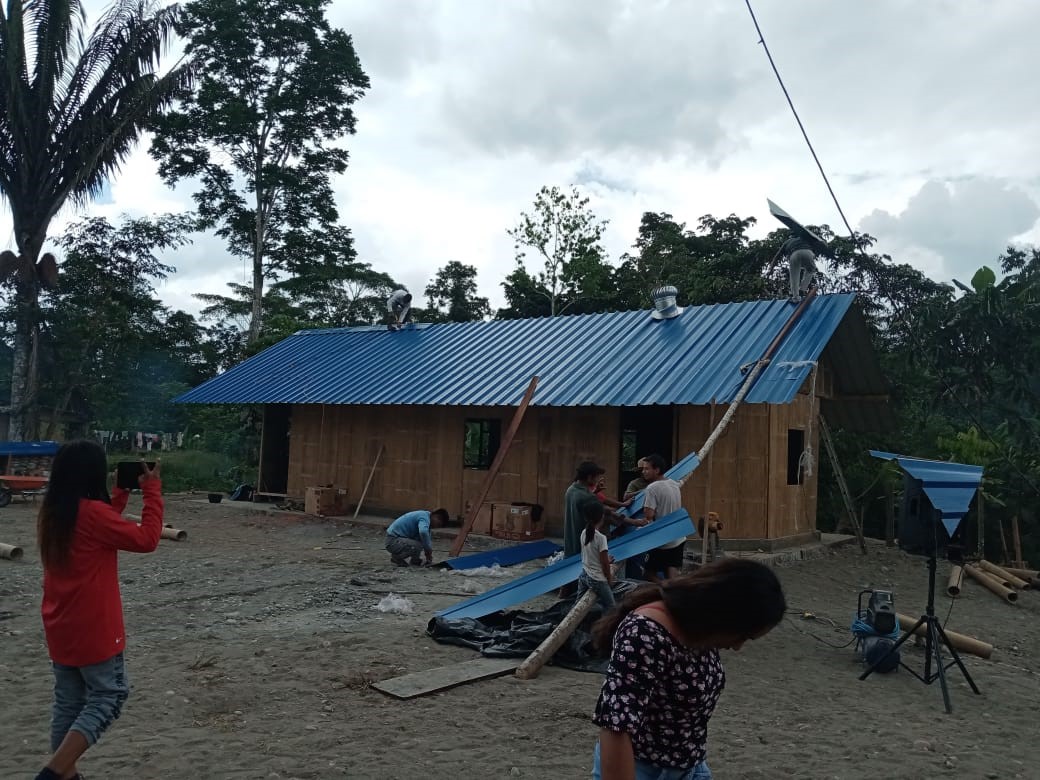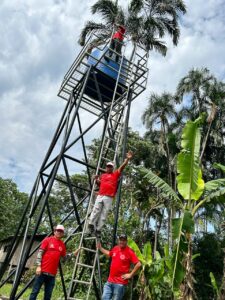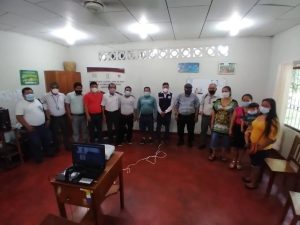The Raíz Ecuador – CAEMBA Foundation is constructing a bamboo collection center in the Wa’iya community, belonging to the Siekopai (Secoya) indigenous nationality, in the province of Sucumbíos, in the Ecuadorian Amazon. This place will serve to process the products collected from bioenterprises in several neighboring communities and will be managed by the Siekopai Women’s Association.
This construction is part of the ‘Bioenterprises in the Amazon’ project.
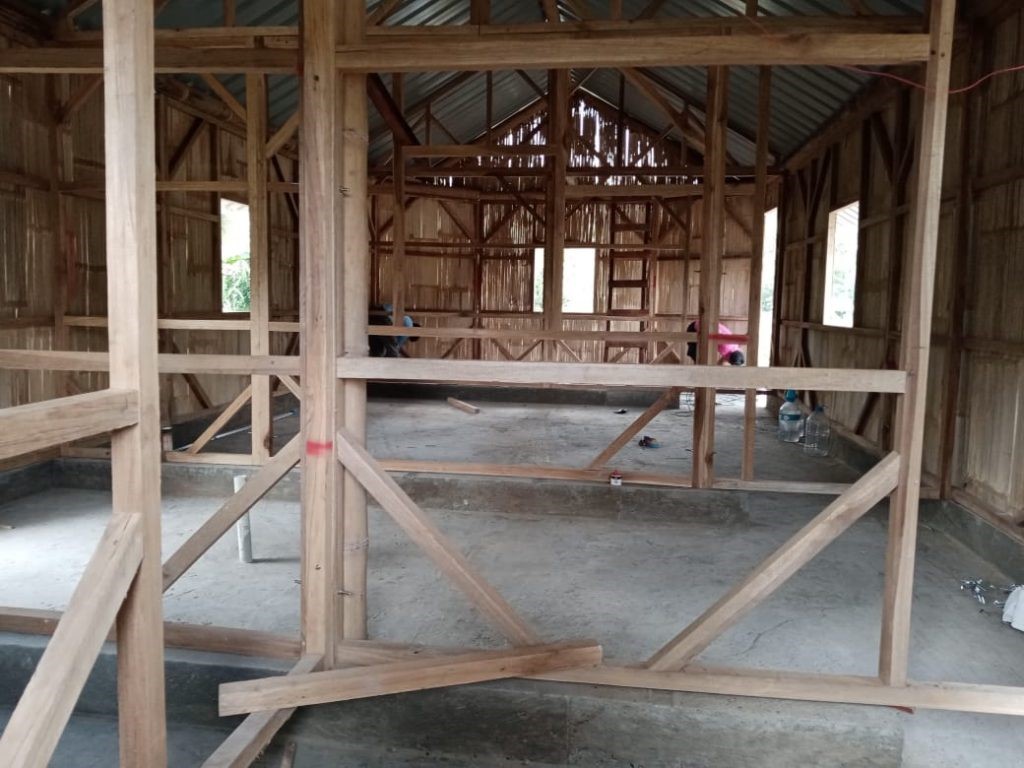
The design of the collection center resembles that of a bamboo maloca, a traditional indigenous house. Bamboo is often referred to as ‘vegetal steel’ due to its versatility, flexibility, and strength. During the second week of November 2021, significant progress was made with most of the construction. This place will serve to store products from bioenterprises of several communities in the Amazon, such as nea pia (black chili), cassava, flour, and chontaduro, ancestral Amazonian delicacies.
Several sanitary procedures required by the National Agency for Regulation, Control, and Sanitary Surveillance (ARCSA) are expected to be implemented in this collection center, including a dirty room, disinfection, and storage prior to distribution and commercialization through national sales channels. The aim is also to obtain an operating permit issued by ARCSA.
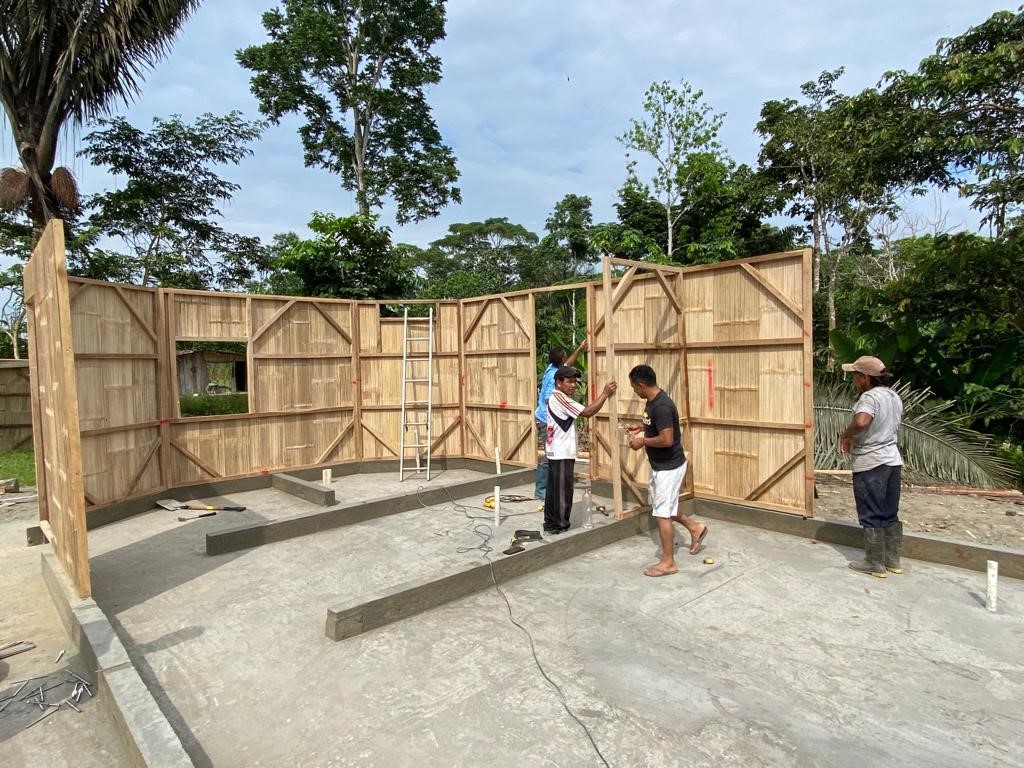
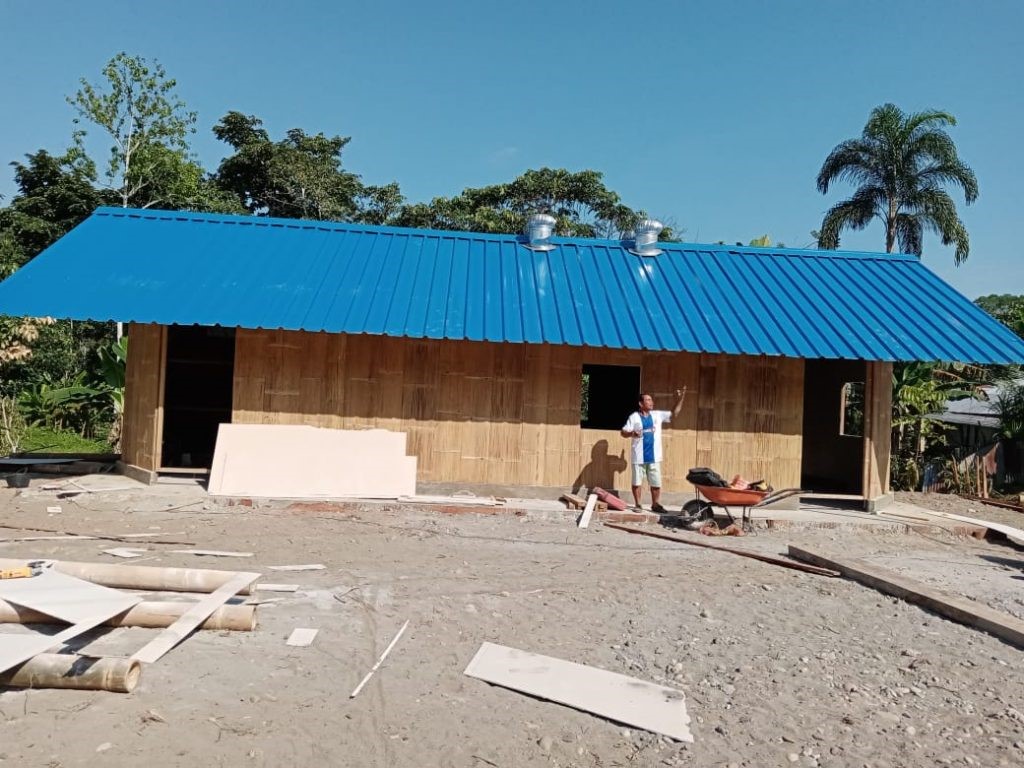
Involved Actors
We extend our gratitude to the Provincial Decentralized Autonomous Government (GAD) of Sucumbíos for providing their machinery to clean and level the land where the collection center is being built. The GAD Sucumbíos also contributed machinery and materials for the construction.
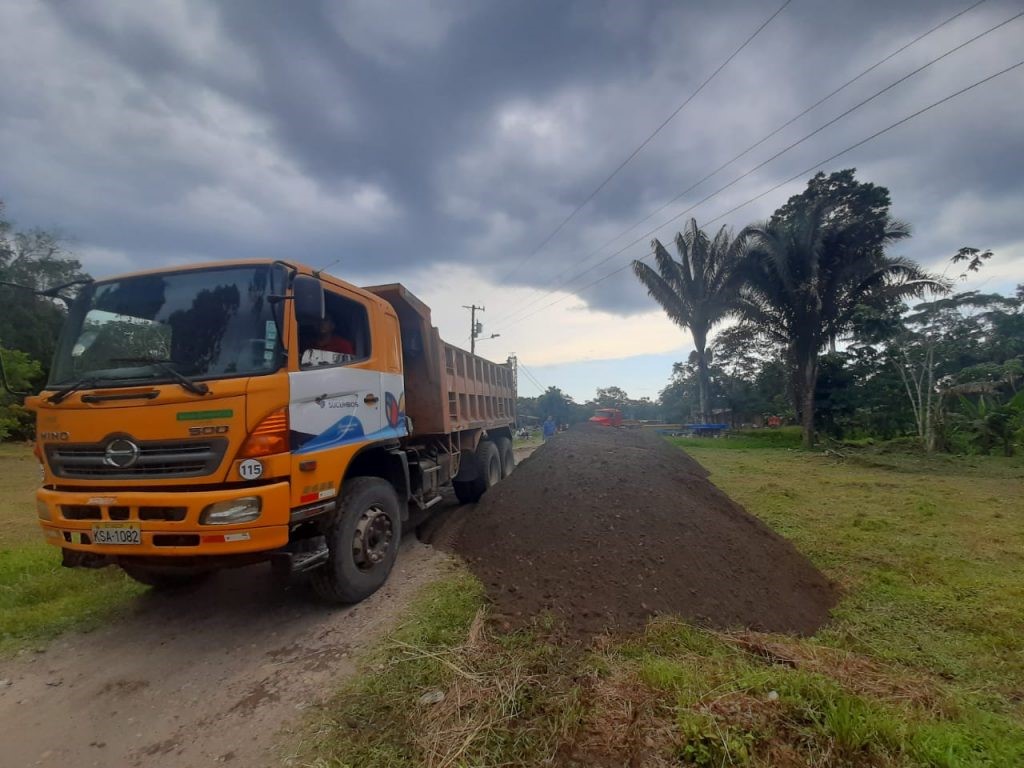
We also extend our gratitude to Fundación Alianza Ceibo; the Emergency Fund for the Amazon, from the Rainforest Foundation; the German Development Bank (KFW); the German Cooperation Agency (GIZ Ecuador); the Small Grants Programme of Ecuador (SGP), from the United Nations Development Programme Ecuador (UNDP); Canopy Bridge; Lianas Center Foundation; and the Program for Supporting the National System of Protected Areas (PASNAP) of the Ministry of Environment, Water, and Ecological Transition of Ecuador.

